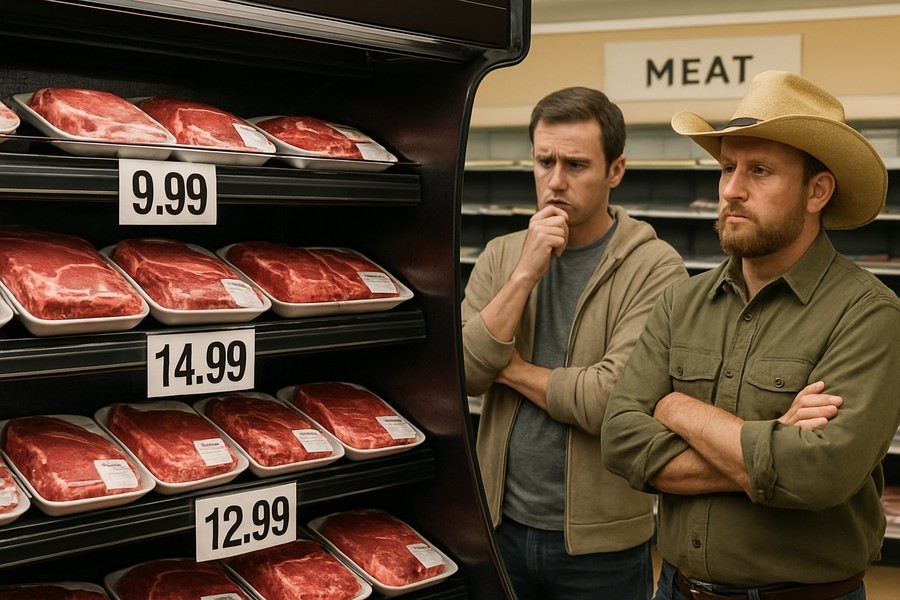
Rising Beef Prices: A Political Issue
Rising beef prices have become a major concern, posing a political challenge in the United States. Even the President, who previously asserted that inflation was under control, is openly discussing this issue which is threatening his commitment to reduce grocery costs for Americans.
Recently, he made a public appeal to cattle farmers, insisting they bring down their cattle prices. However, this demand and other suggestions by his administration to address the escalating beef prices, have been met with opposition by cattle farmers. They fear that these proposed solutions will only make their livelihoods more difficult without making a significant impact on supermarket prices.
The Decline of U.S. Beef Farmers
Over the years, the number of beef cattle farmers in America has dropped consistently, which has led to a decrease in domestic supplies and an increase in prices, even as demand stays high. The country’s cattle stock has sunk to its lowest in close to 75 years, with a loss of over 150,000 cattle farms since 2017 - a drop of 17% as per the Department of Agriculture.
Cattle farmers are feeling the pinch from four decades of consolidation among meat processors who buy their livestock. They are also dealing with high costs for crucial inputs like fertilizer and equipment. These factors, combined with several years of drought compelling farmers to reduce their herd sizes, have worsened the shrinkage in the industry.
Beef Inflation
As per the latest data, retail prices for beef mince have shot up 12.9% in the 12 months leading up to September, and beef steaks have seen a price increase of 16.6%. The price for a pound of ground chuck, which is a richer mince from the neck and shoulder of cows, now averages $6.33, up from $5.58 a year ago. These hikes have far exceeded general food inflation, which stands at 3.1%.
Experts say that the cattle stock has been dwindling over the last few years, but the demand for American beef remains high, hence the steep prices. They also expect the prices to stay high until at least the end of the decade, as it takes years to rebuild herds.
Challenges for U.S. Producers
The Department of Agriculture recently unveiled a major plan aimed at increasing domestic beef production by providing more land for cattle grazing and giving support to small meat processors. This proposal follows another suggestion by the President to import more beef from Argentina, potentially quadrupling U.S. purchases. This suggestion was met with disapproval by cattle farmers.
Even organizations that have previously supported the President’s policies have voiced their concerns, stating that this import plan would only create disorder for American cattle producers at a crucial time, without reducing grocery store prices.
The Role of Market Consolidation
Some believe that the government could make a difference if it targeted the way a few corporations dominate the meat processing market. Currently, just four firms control over 80% of the beef slaughtering and packing market. These companies have faced numerous lawsuits, including one by a fast-food giant alleging that they worked together to inflate beef prices.
While the President overturned an order earlier this year that directed agencies to address corporate consolidation across the food supply chain, his administration has taken other measures to examine competition issues in the agricultural industry.
The Future of the Beef Industry
Many in the industry believe that unless the issue of market concentration is addressed, there is no incentive to rebuild the cattle stock. One cattle farmer from Kansas stated that he managed to stay in the industry by cutting out the middleman and setting up his own stores to reach consumers directly. However, he admitted that most cattle farmers do not have the resources to make that shift and many have left the industry.
While cattle farmers appreciate the Department of Agriculture’s plans to provide more land for cattle grazing, they maintain that without a fair market, it would be unwise to enter the cattle business.
